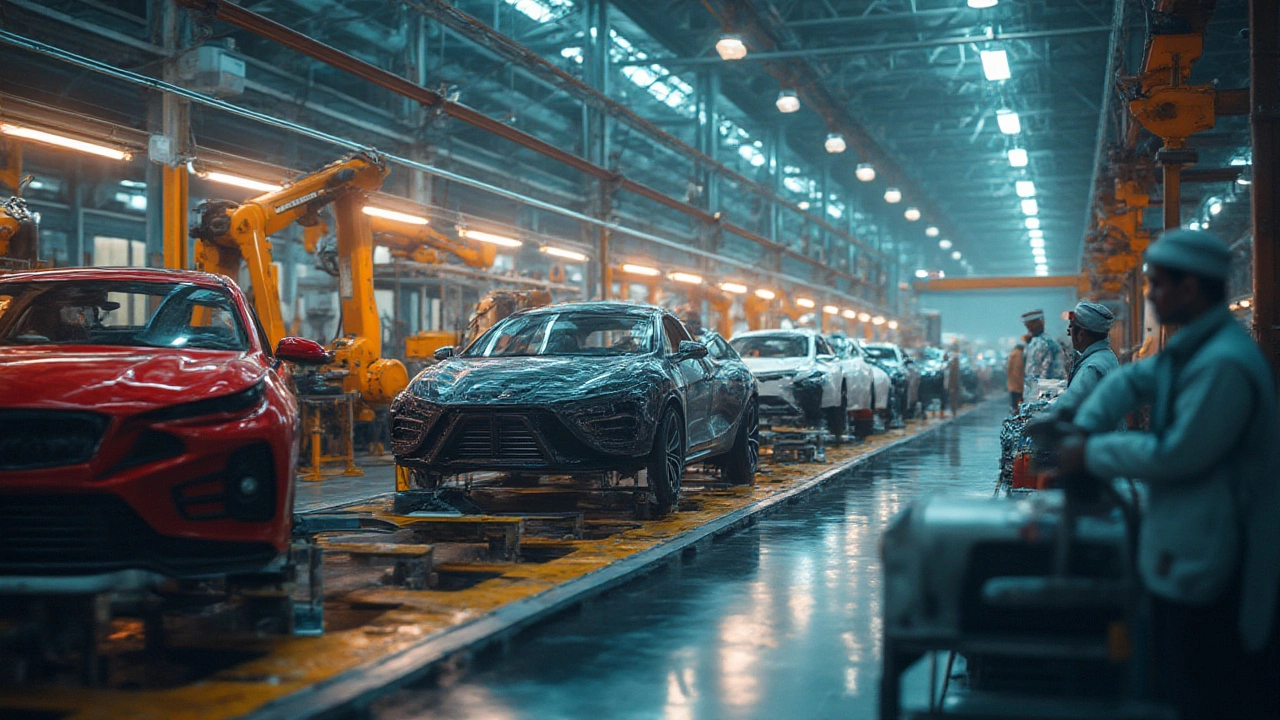Car Makers in Pakistan: Who’s Building the Wheels on Our Roads?
If you’ve ever wondered which companies are behind the cars you see on Pakistani streets, you’re in the right spot. The country’s auto scene mixes long‑standing giants with fresh start‑ups, and it’s changing fast thanks to new policies and tech.
Major Car Makers Driving Pakistan’s Roads
Pak Suzuki Motor Company is the undisputed leader. Its cult‑favorite Alto, Cultus and Swift dominate the entry‑level market because they’re cheap to run and easy to fix. Suzuki’s local assembly plants in Karachi and Lahore keep parts close, which helps keep prices low.
Indus Motor Company, the official Toyota partner, produces the Corolla, Yaris and Fortuner. These models are pricier, but they’re known for durability and resale value. Toyota’s reputation for low maintenance costs makes it a favorite among fleet owners.
Honda Atlas handles the Civic, City and Accord. Honda’s focus on fuel efficiency and a comfortable ride gives it a solid share in the mid‑range segment. Its after‑sales network is strong, especially in urban centers.
For people who need trucks or buses, Ghandhara Nissan and United Motors (DFSK) supply pickups, light commercial vehicles and mini‑buses. Both firms assemble locally and export to neighboring markets.
Heavy‑duty fans see names like Hino and Daewoo for larger trucks and construction rigs. These companies operate joint ventures that keep the supply chain in‑country, which helps with spare‑part availability.
Emerging Trends & Future Opportunities
Electric vehicles (EVs) are the buzzword now. The government has rolled out tax breaks and lower registration fees for EVs, and brands like Kia Motors and Hyundai are gearing up for local assembly. While the EV market is still tiny, early adopters are spotting opportunities in city taxis and delivery fleets.
Another trend is the rise of “kit‑car” assembly. Companies import knocked‑down kits (CKD) and put them together locally to cut tariffs. This model lets smaller players enter the market without building a full factory.
Consumer preferences are shifting too. Millennials are looking for tech‑packed cars with infotainment, safety features and decent mileage. As a result, manufacturers are adding features like touchscreen consoles and advanced driver‑assist systems even on budget models.
Finally, export potential can’t be ignored. Pakistan’s strategic location gives it access to Central Asian and Middle Eastern markets. Some manufacturers are already shipping kits and finished vehicles to Afghanistan and Iraq, and the government is pushing for more trade agreements.
So, whether you’re buying your first car, thinking about a career in auto manufacturing, or just curious about the industry, the picture is clear: Pakistan’s car makers are a mix of trusted veterans and ambitious newcomers, all racing toward a more electric, tech‑savvy future.
Are There Any Cars Made in Pakistan? Exploring Local Car Manufacturing
Explore the facts about car manufacturing in Pakistan—who makes cars there, how local the vehicles really are, and what the future holds for Pakistan's auto industry.
Read More